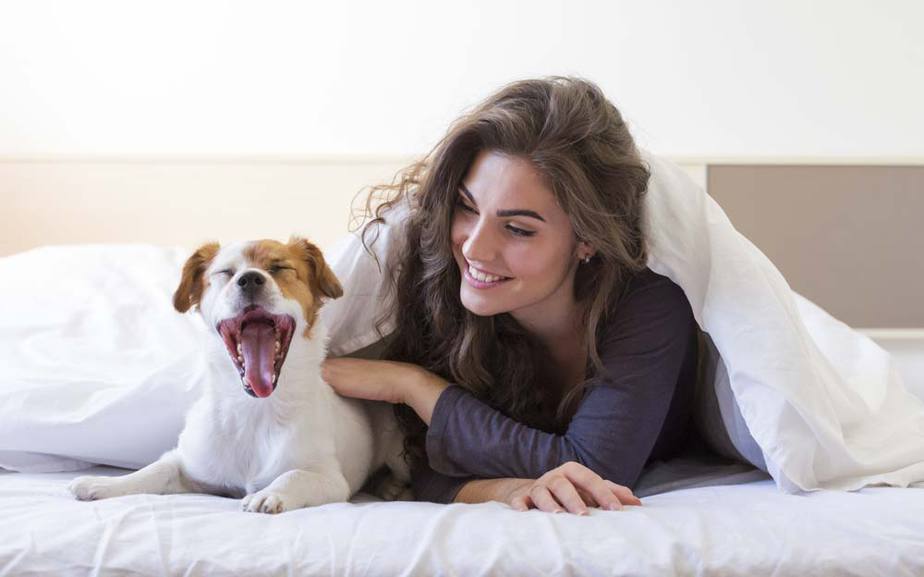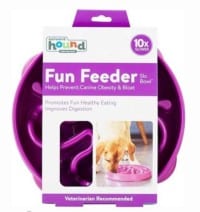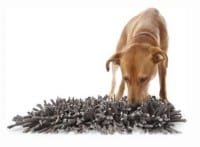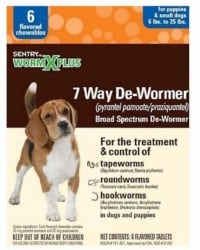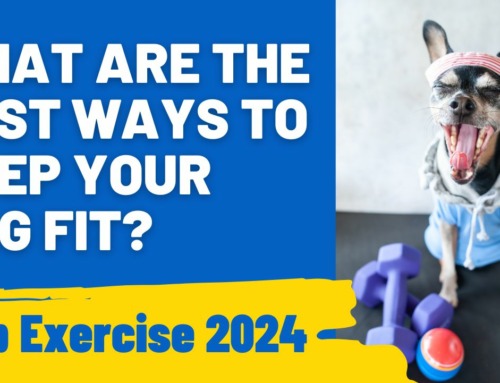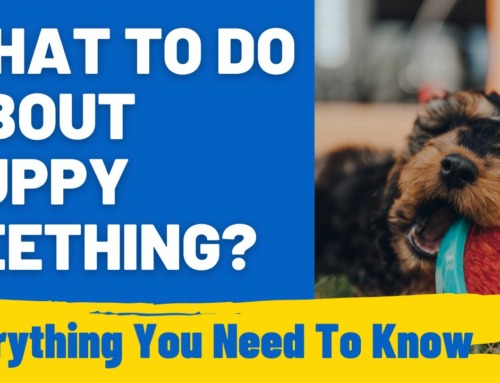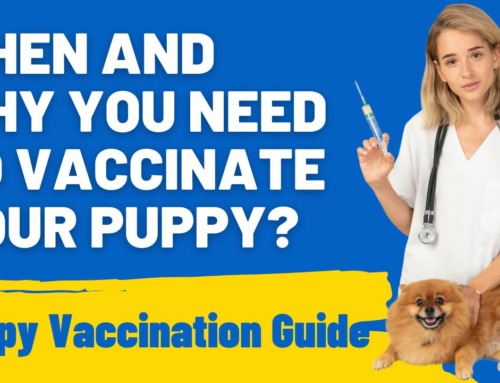Puppy hiccups can be both adorable and puzzling for pet owners. They’re generally not a cause for concern, but understanding their causes and how to manage them can be helpful.
Puppies experience hiccups due to spasms in their diaphragm, which can be triggered by various activities like eating or drinking too quickly, high energy levels, stress, or even while they’re sleeping. While they are usually harmless, there are ways to calm a hiccuping puppy, and in rare cases, hiccups can indicate a more serious health issue.
Key Points:
- Causes of Puppy Hiccups: Hiccups in puppies are mainly caused by spasms in the diaphragm, often triggered by rapid eating or drinking, high energy levels, or sudden changes in activity.
- Managing Puppy Hiccups: To alleviate hiccups, gently calm your puppy or encourage them to drink water slowly. Avoid trying to scare them as a remedy.
- When to Seek Veterinary Help: If hiccups persist for an extended period (over an hour), or are accompanied by symptoms like wheezing or difficulty breathing, it’s important to consult a vet as it may indicate a more serious condition.
What Causes Hiccups in Puppies
Puppy hiccups are caused by their diaphragm having a spasm. When the diaphragm is irritated or strained, it contracts involuntarily. Activities such as eating and drinking too quickly, bursts of energy that create rapid breathing, stress, over-excitement, and tiredness, can all stimulate hiccups in your puppy.
Eating and Drinking
Often, it’s thought that hiccups occur when puppies have excess air in their stomach. This usually occurs when our puppies eat or drink too quickly, causing them to gulp air.
A food intolerance can also be the cause of hiccups. The stomach is close to the diaphragm, potentially causing the spasms as your dog’s tummy is uncomfortable.
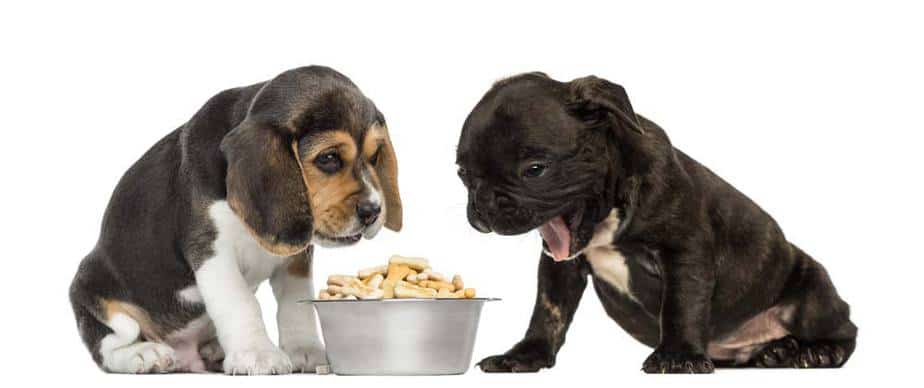
Exercise and Behavior
When our puppies play, they can be prone to hiccups. A quick change in their energy level, as well as rapid breathing necessary for cooling off after a romp around the yard, can both contribute.
This is especially true for puppies, rather than adult dogs, as they’re more likely to have higher energy levels that can contribute to exercise induced hiccups.
Being too cold or tired can also bring on a bout of hiccups as well. In fact, sleeping puppies almost seem to hiccup more than awake ones!
Hiccups in Puppies
As we previously mentioned, the fact that puppies tend to be more energetic and excitable than adult dogs can be one reason why puppies seem to get hiccups more often. Not only do they have higher energy, but they tend to change from excited to sleepy much faster.
Puppies are also more prone to gulping their food and water than adult dogs. In general, puppies are more excited about stuffing their faces with food because they are growing!
However, we also know that puppies experience hiccups before they are born, while they are still growing in their mother’s womb. This occurs in humans and other mammals as well. We don’t know for sure why it happens, but it’s been theorized that puppies (and other mammals) experience this as their body tests the muscles associated with breathing.
This theory makes sense when we realize that puppies experience hiccups much more often than adult dogs. Even after your puppy is born, their body is still developing and growing for many months. These changes can potentially trigger hiccups.
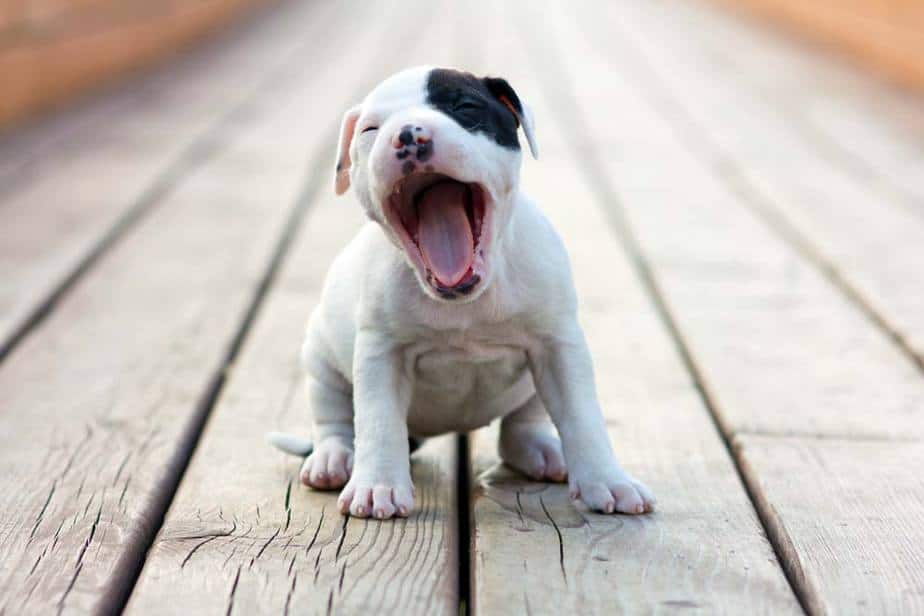
How to Get Rid of Puppy Hiccups
While hiccups are usually harmless, there are a few techniques you can try to alleviate hiccups in your dog.
One technique to avoid is scaring your puppy. While it might be common in humans to try and scare someone to cure their hiccups, your puppy will likely only get a fright, and it won’t resolve their hiccups.
Instead, one method to try is calming down your puppy. There are a variety of ways to help calm puppies down. For some dogs, a slow and calm walk with lots of sniffing will be beneficial. For others, they might do best when enjoying a good snuggle session with you.
A slow, gentle pet without fast movements, and in a quiet area, can often calm down your puppy and may resolve their hiccups.
A drink of water also can help, just as it can in people. It’s important to ensure they drink slowly, otherwise you risk them gulping air. If this occurs, you risk your puppy developing the hiccups again.
A sweet, syrup-like substance can also help bring the spasms in the diaphragm under control. Honey or maple syrup can both be good options, but this isn’t endorsed by us, as it could cause an upset tummy for your puppy.
For the above point, make sure that anything you give your dog doesn’t contain Xylitol. This artificial sweetener is used in many products, but it is extremely poisonous to dogs.
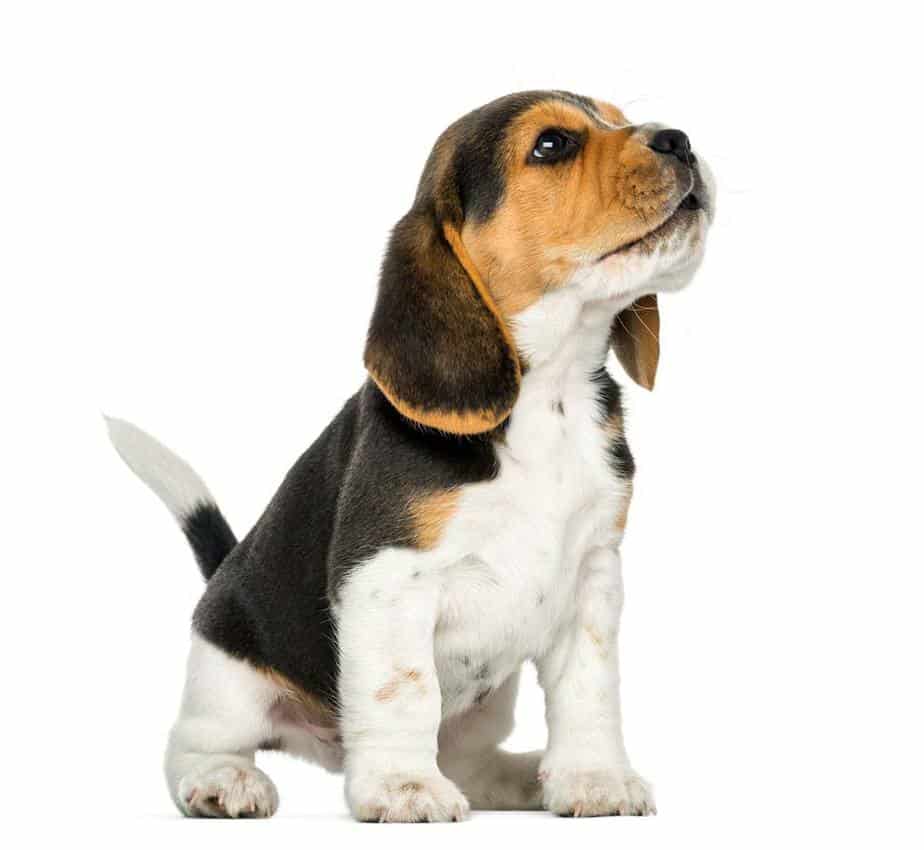
Preventing Hiccups in Puppies
The good news is that hiccups are almost always harmless, and usually it’s best just to ignore them and they will pass. However, if hiccups are bothering you or your puppy, you can still take steps to prevent them.
The easiest way to prevent your puppy from developing hiccups after eating or drinking is to ensure they eat and drink slowly.
Because gulping food can lead to more problems than just hiccups, including bloat or gastrointestinal upset, there are many products that are designed to help slow down eager eaters.
One product is called a slow-feeder bowl. This bowl isn’t flat, and instead has separations that your puppy must eat around in order to catch their food. This prevents them from being able to gulp their food all at once.
Along a similar line is a snuffle mat. Usually made from fleece or rubber, the interactive feeding toy provides places to hide food. As a result, your puppy will “snuffle” through the fleece strips to find their food, having to eat it piece by piece.
Not only does feeding your puppy in an interactive way help to slow down their gulping, but it provides them with much-needed mental stimulation as well. Your puppy will be more content and tired after eating from a snuffle mat.
When to Worry About Your Puppy’s Hiccups
In general, you don’t need to worry about puppy hiccups. There are many reasons for dogs to have hiccups that don’t lead to problems, and they will usually go away on their own.
There are a few situations in which hiccups may be a sign of something more serious, though. In all these cases, there isn’t a cause for concern unless the hiccups continue for an hour or more without stopping. If your puppy has prolonged hiccups for more than an hour, is accompanied by wheezing noises, or they have difficulty breathing, then you should take them to the vet.
Since hiccups are associated with spasms in the diaphragm, the muscle that helps control breathing, any additional symptoms of breathing problems could indicate a more severe issue.
If your puppy has hiccups for a few hours, they may be a symptom of a more serious condition – including:
- Respiratory defects
- Pneumonia
- Asthma
- Pericarditis
- Hypothermia
- Heat stroke
Another sign that a trip to the veterinarian is warranted is if hiccups occur in regular episodes, along with coughing, sneezing, or heavy breathing.
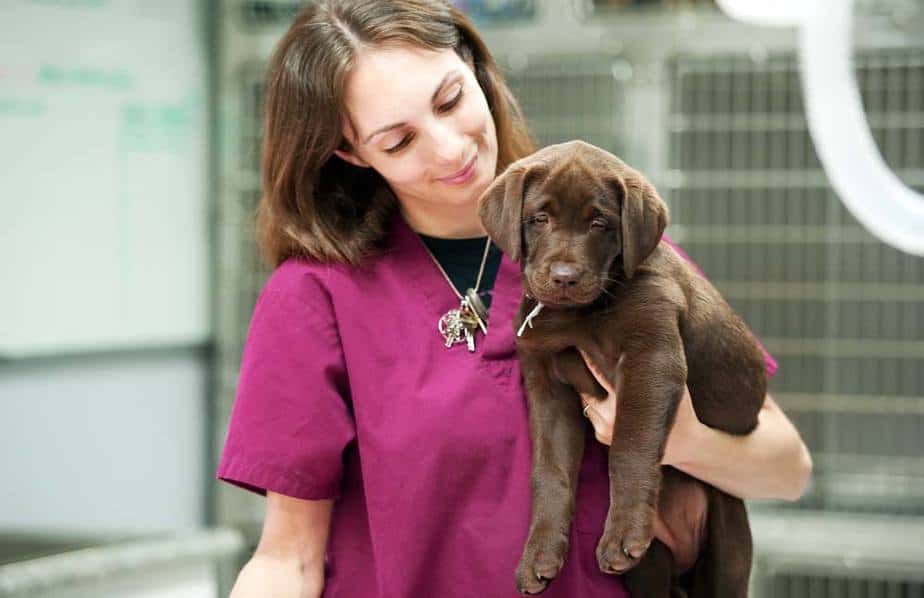
Puppy Hiccups, Vomiting and/or Diarrhea
On occasion, you may notice hiccups along with gastrointestinal problems such as diarrhea or vomiting. These signs themselves usually warrant a vet visit but accompanied with hiccups they can mean a few different things.
Your puppy’s stomach may simply be upset from something they ate, or from eating too much. However, in conjunction with other symptoms, it may even mean that your dog has parasites.
Puppy Hiccups and Worms
Worms can be a sign of hiccups in dogs. If you notice hiccups regularly occurring, it may be a good idea to bring a stool sample with you on your puppy’s next visit to the vet. This is the most definitive way to determine if there are parasites living in your dog’s intestinal tract.
Be sure to have your puppy on a de-worming schedule. They should be de-wormed at 2, 4, 6, 8, and 12-weeks as a puppy, and then every 3-months thereafter.
An affordable option that is effective in treating worms is Sentry HC WormX Plus for puppies.
Final Word
Paying attention to potential symptoms of a variety of health conditions is a part of being a responsible puppy owner. In the majority of cases though, hiccups are just a cute occurrence that you get to enjoy.
As always, if you ever feel there’s just something not right about your puppy, then you should take them to their vet for a checkup.

